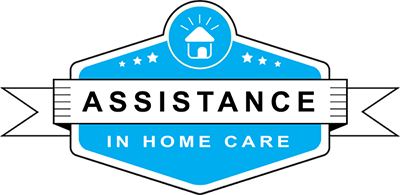The Benefits of In-Home Dementia Care vs. Facility Care
When a loved one is diagnosed with dementia, one of the most important decisions a family faces is choosing the right type of care. Two of the most common options are in-home dementia care and facility-based care, such as assisted living or memory care centers. While both can provide valuable support, in-home care offers distinct advantages in comfort, familiarity, flexibility, and cost-effectiveness.
Understanding the differences between these options can help you make the best decision for your family.
1. Comfort and Familiarity
In-Home Care:
One of the most significant advantages of in-home dementia care is that your loved one remains in a familiar environment. Being surrounded by their own furniture, photos, and routines provides comfort and stability that can reduce confusion and anxiety. Familiarity is essential for people with dementia, as new or unfamiliar surroundings can be overwhelming and disorienting.
Facility Care:
Residents must adapt to new surroundings, schedules, and caregivers in a care facility. Even in specialized memory care units, the environment is shared and may feel impersonal to some. While many facilities offer structured care, the transition can be difficult for someone with memory loss.
2. One-on-One Attention and Continuity of Care
In-Home Care:
In-home caregivers provide personalized, one-on-one attention. Care plans are tailored to the individual's needs, preferences, and routines. Families can expect more consistency, often with the same caregiver providing support regularly. This continuity helps build trust and reduces stress for the individual and their family.
Facility Care:
In facilities, staff members rotate between multiple residents. While care is available around the clock, it is often divided among many individuals. This can lead to less personal attention and less consistent caregiver relationships, which can be challenging for those with dementia who thrive on routine and familiarity.
3. Flexibility and Family Involvement
In-Home Care:
Families have more control over the schedule, type of care, and level of involvement with in-home care. You can adjust hours, responsibilities, and even integrate care with other healthcare providers or hospice services. Loved ones can remain a part of daily life and participate more fully in the care process.
Facility Care:
Facilities operate on set routines and regulations. The administration typically manages visiting hours, care plans, and staff access. This can limit how and when families can participate in care decisions or visit loved ones.
4. Cost Comparison
In-Home Care:
In-home care costs can vary depending on the number of hours needed, but they are often more affordable than full-time residential care, especially in the early and middle stages of dementia. Families can start with part-time care and increase support as needs grow, making it a flexible and cost-effective option.
Facility Care:
Residential care facilities typically charge a flat monthly rate that covers room, board, and basic services. Costs can rise significantly based on the level of care required, and some facilities charge additional fees for medication management, personal care, or special accommodations. For many families, these expenses can exceed the cost of in-home care.
5. Emotional and Mental Well-Being
In-Home Care:
Remaining at home often contributes to better emotional health. Familiar surroundings can reduce feelings of fear, confusion, and loneliness. The ability to continue with long-standing habits—watching a favorite show, tending to a garden, or eating home-cooked meals—can improve quality of life and help slow cognitive decline.
Facility Care:
While many facilities offer enriching activities, some individuals may struggle to adjust to group settings and shared routines. The change in environment and loss of independence can sometimes negatively impact emotional well-being.
Which Option Is Right for Your Loved One?
Every family’s situation is unique. In-home dementia care is often preferred for those seeking comfort, flexibility, and personalized support. It allows your loved one to age in place while receiving high-quality care tailored to their needs. Facility care may be more suitable for individuals requiring intensive medical attention or no longer safe in a home environment.
Assistance In Home Care offers compassionate, customized dementia care that evolves with your loved one’s needs. Our experienced caregivers are trained to provide support at every stage of dementia, all in the comfort of home.
Ready to explore in-home care options?
Call us today at (844) 490-9755 or schedule a free consultation to learn how we can help your loved one stay safe and supported at home.


